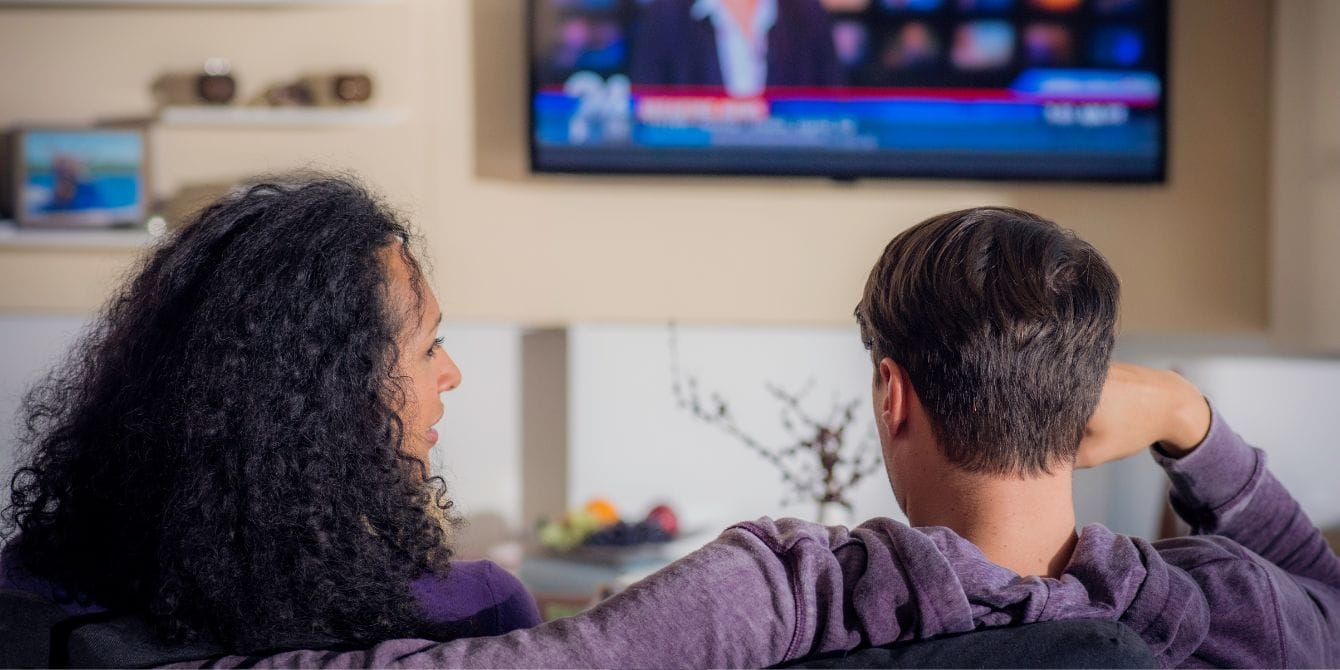
Talking to your kids about the news can be hard. During a hotly contested presidential race, it’s even harder. But it doesn’t have to be. I’m a mom who raised two boys while working as a TV journalist. I really wanted them to know about what was going on in the world, but a lot of the news I covered was alarming, and frankly, not appropriate for young ears. So I limited their exposure to mainstream news—and when there were some big stories that couldn’t be avoided, we would sit down and have a family discussion about them.
I had my kids draw pictures about what they saw in one instance. And in one particularly entertaining moment, my little boys both put on blue blazers and we had a mock presidential debate with me as the moderator. I asked them relevant questions like, “What would you do to make school better,” and “How would you improve playgrounds?” Other stories required more thought – and more nuance. Explaining 9/11 for example. Or George Floyd.
Frankly, it would’ve been a whole lot easier to have skipped some of those conversations. But as we at KidNuz like to say: kids are curious, the world is fascinating, and knowledge is power—and children really want to know what’s going on. Especially these days, when they—and their friends—are hearing, seeing and sharing things out of context, much of it from social media and much of it inaccurate.
If you’re ready to dive in, It’s always best to ask what they’ve heard, what they think they know, and what they ‘want’ to know—before going down an explanation rabbit hole. They want the facts, but probably fewer details than you’d expect. Meet them where they are and keep it simple and straightforward.
One suggestion: Start at the source: Boosting your child’s news IQ means emphasizing the need to question where the story is coming from. Are these proven facts? Or is this just hearsay and rumors? Equally important for kids and adults is to try to get a variety of news—not just from one source that, even if it’s professional, may have a bias in one direction. I even like to regularly tune in to international news to get a different perspective on how the rest of the world is viewing what’s happening in the US and beyond.
Maintaining interest in the news
Here are 3 ways to help keep kids interested in appropriate current events:
1. Catch up on the news on a daily basis
Set up a routine to listen or read about news together at the same time every day—maybe over breakfast or while driving to school. This will get them in the habit of wanting to be in-the-know and they’ll start to see how some stories lead to follow-ups, which will make them more familiar with the topic.
2. Discuss what’s going on
Pick a headline or two from the newspaper or newscast and have a discussion about it. A few examples from recent headlines:
- The Olympic controversies, like the scoring decision in women’s gymnastics. How would you resolve it?
- Two astronauts are stuck in space. How would you feel about a planned, week-long trip to the ISS that might turn into 7 months?
- Climate change. The entire US is experiencing some pretty weird weather. Have you noticed? What small things might you do to reverse global warming? (Like biking to school instead of asking for a ride, or planting bee-friendly plants etc)
3. Carefully select news sources
Make sure to select fair and balanced news sources—not opinions. Looking at them together is extremely important, so your child can get in the habit of reviewing news with a critical eye. You might start with:
- Websites that end in .gov or .edu
- Science sources including National Geographic and Nature
- News sources your family approves of
A news podcast just for kids: Kidnuz
Admittedly, it is hard to find one, single source for daily age-appropriate news. That’s why three former colleagues and myself started the podcast KidNuz. It airs Monday through Friday with 6 to 8 kid-friendly, non-partisan, timely news stories that cover a variety of topics in about 7 minutes. With kids getting more than enough screen time, we intentionally made it an audio-only podcast. Parents and teachers are in the best position to decide the right age to listen, but our young audience is usually between 8 and 13 years old. There’s even a quiz to encourage kids to listen carefully so they’ll get all the right answers. We’ve had over 19 million downloads since we started just over 6 years ago. And the feedback is phenomenal:
- Parents love it because it sparks great conversations.
- Teachers love it because it improves awareness of current events.
- And most importantly, kids love it because they finally know stuff their parents are talking about.’
Kids are curious and want to know what’s going on in the world. Despite many doom-and-gloom headlines, the world is generally a pretty amazing place. It’s not only possible, it’s critical as world citizens, to improve your kids’ news IQ and keep them informed, engaged and excited about following current events.
This story is a part of The Motherly Collective contributor network where we showcase the stories, experiences and advice from brands, writers and experts who want to share their perspective with our community. We believe that there is no single story of motherhood, and that every mother’s journey is unique. By amplifying each mother’s experience and offering expert-driven content, we can support, inform and inspire each other on this incredible journey. If you’re interested in contributing to The Motherly Collective please click here.

